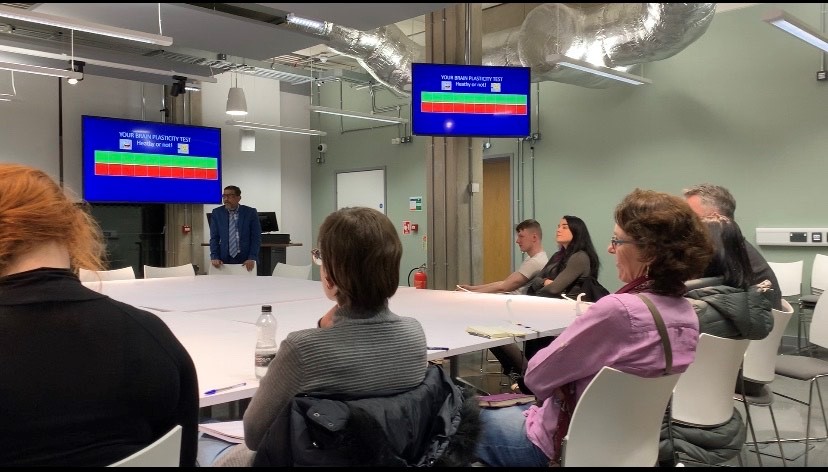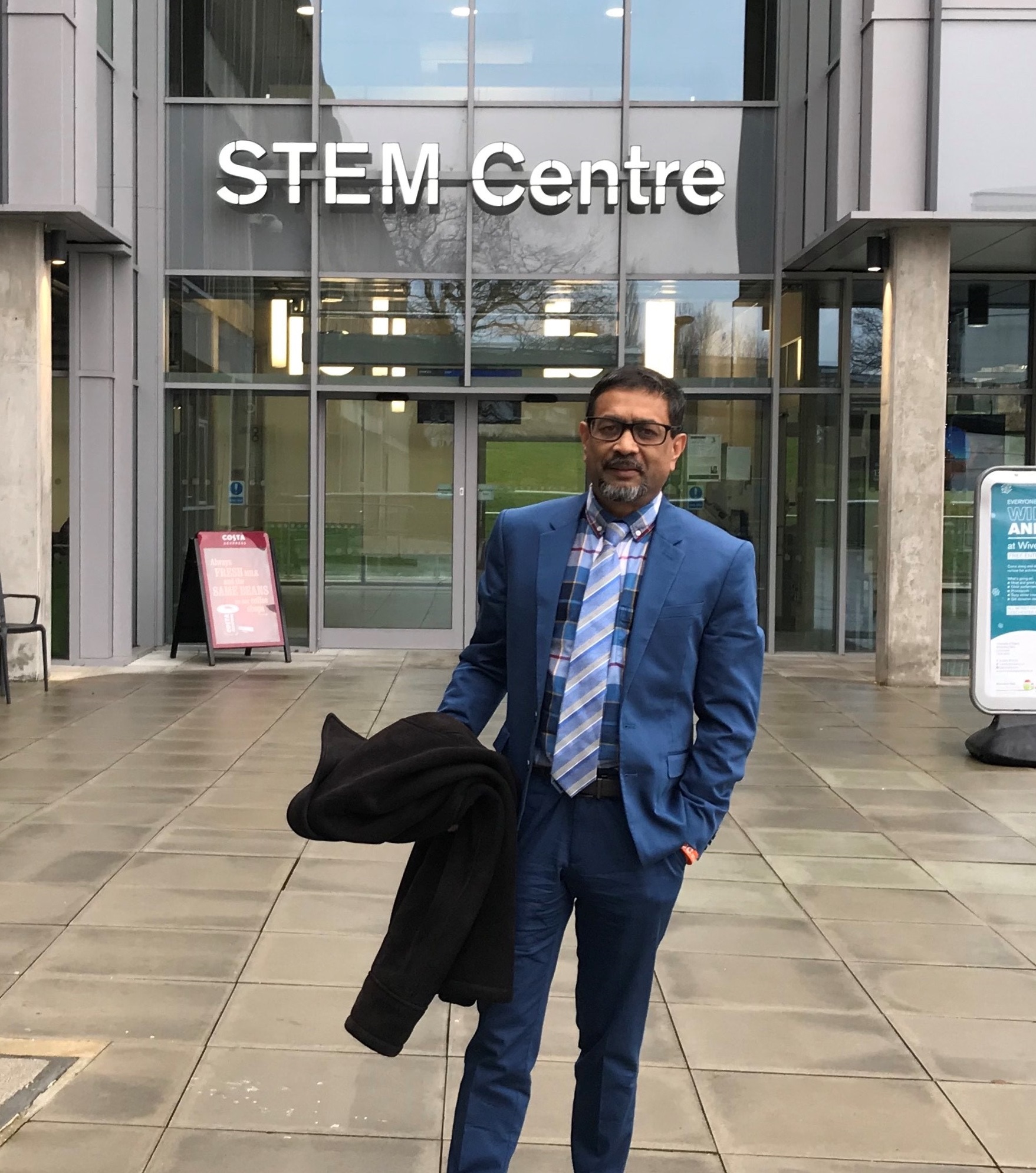STLCC Professor Presents Neuroplasticity Research in England

A recognized expert in the field of neuroscience, Chowdhury’s presentation was titled, “Plasticity of the Adult Brain: How to Make it Work for You.”
During his lecture on Dec. 17, Chowdhury spoke to neurobiology and psychology faculty members and graduate students about his current and previous research on brain plasticity. Among the information shared, Chowdhury highlighted his previous work to generate plasticity in certain parts of animal brains.
He also highlighted techniques adults can use to protect their brains against early cognitive decline and injury related diseases. In addition, he discussed how the implications from his most recent progress of research could potentially be used to treat various forms of injury related disabilities in the future.
“Neuroscience is a vast and dynamic field, and it’s exciting to contribute to this important work,” Chowdhury said. “Neuroplasticity-based treatments are sure to play a significant role in the practices of neurological and psychiatric medicine in the future. As such, it’s imperative that we increase our understanding of the mechanisms of adult brain plasticity so we can develop rehabilitative strategies aimed at optimizing functional recovery.”

Prior to his role at STLCC, Chowdhury held research positions in the Department of Anatomy and Neurobiology at Washington University School of Medicine and Dalhousie University School of Medicine in Halifax, Canada. He earned a master’s degree in physiology from the Post Graduate Medical Research Institute in Bangladesh and a doctorate in neurophysiology from Gifu University School of Medicine in Japan. He also completed post-doctoral fellowships in the Department of Biology at Washington University and the Centre for Neurobiology of Learning and Memory at the University of California-Irvine.
“Dr. Chowdhury is a distinguished member of our faculty here at Wildwood, and an esteemed member of the scientific community,” said S. Carol Lupardus, Ph.D., president and chief academic officer at STLCC-Wildwood. “We truly value his scholarship and appreciate his willingness to share his knowledge in the classroom and beyond.”
